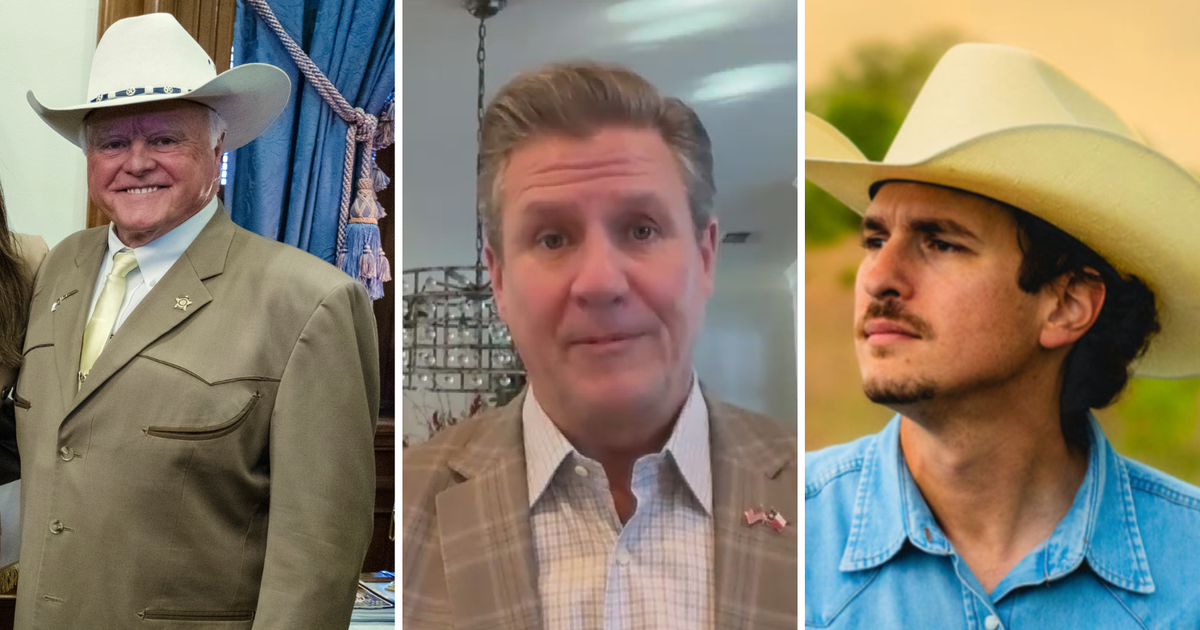Transcript: Scott Gottlieb discusses coronavirus on "Face the Nation," September 20, 2020
The following is a transcript of an interview with former FDA Commissioner Scott Gottlieb that aired Sunday, September 20 2020, on "Face the Nation."
MARGARET BRENNAN: We want to turn now for perspective to former FDA commissioner Dr. Scott Gottlieb. He joins us from Westport, Connecticut. Good morning.
DR. SCOTT GOTTLIEB: Good morning.
MARGARET BRENNAN: President Trump said at his rally last night that the country's rounding the turn on COVID-19 even without a vaccine. Is that true?
DR. GOTTLIEB: Well, I think we have at least one more cycle with this virus heading into the fall and winter. If you look at what's happening around the country right now, there's an unmistakable spike in new infections. And you're also seeing declines in hospitalizations that we were achieving starting to level off. I would expect them to start going up again as well. There's about 15 states with a positivity rate is 10% or higher, which is deeply concerning. There's about 30 states where the Rt, the rate of transfer, is above one, meaning they have an expanding epidemic. So right now we're seeing a resurgence of infection. Now, whether or not that's a post Labor Day bump and will start to level off or this is the beginning of a resurgence heading into the fall in the winter, it's unclear. But I'm deeply concerned that as we head into the fall and the winter, this is the season when a respiratory pathogen like coronavirus wants to spread. And so there's a lot of risk heading into this season.
MARGARET BRENNAN: Is there any similarity in terms of the concentrations you're talking about? Is it still the Midwest that has you most concerned?
DR. GOTTLIEB: Well, right now, we're seeing infections go up around the country. The Northeast still is holding on to the gains that it achieved in driving down infections. But we're seeing infections starting to rise in the South as well. And you're definitely seeing a concentration of new infections in the Midwest. So that's- that's driving a lot of the growth and infections. But it's getting more distributed around the country. And the concern is that as we get a little bit more complacent because we are exhausted as a population from what we've been going through, we head back to school and college, people try to go back to work against the backdrop of the fall and the winter when people are heading indoors because the weather is cooling. That's a real setup for risk. And there- there hasn't been enough people exposed to this virus at this point across the country that we have enough background immunity that that's going to really stop the rate of transfer. I mean, it may slow it in certain parts of the country where it's been epidemic like Miami or Houston or New York, but most parts of the country are still vulnerable. And in fact, when you look at what's happening in Arizona right now, you're starting to see cases go back up, even there. And that place was very hard hit. And so it's an indication that there's a lot of virus left to go in this country.
MARGARET BRENNAN: President Trump said this week that you could have enough of a supply of a vaccine by April. He had tussled with the CDC director publicly when the CDC director said we would have to wait until perhaps the third quarter of 2021 before getting a vaccine available to the American public. Who is right?
DR. GOTTLIEB: Well, I'm on the board of Pfizer, which is one of the companies that has a vaccine in advanced development, so I have some insight into this from that, although everything I know is in the public domain at this point. I think that is possible, that you'll have enough doses available by April, May. But I do not believe that a vi- vaccine will be licensed for general use by the population until, in an optimistic scenario, really the second quarter, probably the end of the second quarter in 2021 and perhaps a little later than that. I mean, the reality is that as we come out of the winter and head into the spring, hopefully this virus will start to dissipate in the summer. So what you really want is a vaccine available for mass inoculation before you head into the fall of 2021. So hopefully in a good scenario, whether you have the vaccine available in June or you have it available in August, isn't going to make that much of a difference because the virus won't be transferring as readily by then. But I do not believe that we'll have a vaccine available for general inoculation until probably the end of the second quarter of 2021 and maybe into the third quarter. Now, that said, I do think we can have a vaccine available sooner than that under an emergency use authorization for select groups who are at particularly high risk of bad outcomes from- from the virus. But that's going to be very select groups on a very limited basis.
MARGARET BRENNAN: You've said time and again that at the FDA, the agency you used to run, you trust the scientists will put science first in their priority. When it comes to the safety of a vaccine, is there any scenario where the president could override legally override the FDA and greenlight a vaccine?
DR. GOTTLIEB: I don't see it. And I don't see a scenario where this can happen and people don't see it, where it's not readily apparent. This isn't like posting new guidelines on CDC's website in the middle of the night. In order to issue an authorization, an emergency use authorization or an approval, the only people capable of actually drafting that package are the people at FDA. And they're not going to be forced to do it unless they scientifically believe in it. I know the folks who are involved in this process, the career professionals who are engaged in this process, and they're not going to be easily cowed. And, remember, on the other side of this, you also need a manufacturer that's willing to commercialize a vaccine based on that authorization or approval. The vaccine doesn't just ship into the supply chain. And I do not believe any manufacturer is going to commercialize a vaccine based on an authorization or approval that doesn't have the consent and the agreement and the involvement of the career professionals inside the FDA. I just don't see that happening. So this isn't something that I think is easily subject to outside influences. The process was designed that way. I mean, Congress set the process up this way because they wanted an objective, impervious process.
MARGARET BRENNAN: I hear what you're saying, but I want to ask you about an article in The New York Times that again adds yet another question about the independence of our health agencies. The Times is reporting that the Health and Human Services Secretary, Alex Azar, signed an order that bars other agencies, including the FDA, from signing new rules affecting products, including vaccines. The Times reports that when you were running the FDA, you actually tried to stop this kind of power grab. It happened. What's the political implication? What's the reality now?
DR. GOTTLIEB: Well, I don't think this- this is unfortunate because I think it sends exactly the wrong message. At a time that we want to reaffirm the independence of these agencies, this does create an implication, or at least a specter, that the independence of that agency is being eroded or influenced. That's not the practical effect right now in terms of what this is going to do to the COVID response. But at a time we should be focused on that COVID response, this is a major distraction. Now, what this move does is basically say that only the secretary can codify rules. And if he's asserting that right now, that could call into question all the rules that were implemented, where- where lower level people were delegated the authority to sign those rules. And in fact, on my second to last day on the job, I recodified the tobacco deeming regulation because I was concerned that they could take this kind of a step and then use it as a basis to call into legitimacy the codification of that deeming rule. So I recodified it myself, even though it was put in place under the Obama administration. So I think that this is the wrong move at the wrong time, at a time that they should be reaffirming the independence and the integrity of these agencies. To do this now just makes no sense.
MARGARET BRENNAN: And does it just mean what, more potential lawsuits? What's the implication of it?
DR. GOTTLIEB: Yeah, it could mean, I think what's going to happen now is conservative groups and there's actually litigation this week that's being heard around the tobacco deeming rule, where a group is alleging that that rule was inappropriately implemented because the authority to sign that rule was delegated to a lower level career official inside the agency. And so this has been something that conservative groups, frankly, have been after for a while. They- they want to elevate the authority to implement regulations. And I think if the basis for why the secretary did this is because he thinks the past delegations were inappropriate, that potentially could create another avenue to have legal challenges. So it's a distraction to FDA at the time that they should be focused on the COVID response. The timing of this makes no sense. I don't believe in the underlying basis of what they did. And I did- I did oppose it when I was at the agency. But the timing of this is just really poor right now because it's going to distract the agency. And frankly, it creates headlines that could- could leave the perception that the agency is being bullied.
MARGARET BRENNAN: Thank you very much for- for putting that in perspective and for sharing your insight, Dr. Gottlieb. We're going to have to leave it there and we'll be back in a moment.



